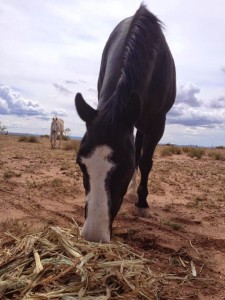On Wednesday, the Fifth Circuit Court of Appeals ruled in favor of the AQHA in the ongoing battle over the registration of cloned horses. [Read full opinion here.]
Background
As you recall from this prior post, two AQHA members, Jonathan Abraham and Gregg Veneklasen, filed suit against the AQHA, alleging that the organizations policy that cloned horses and their offspring were not eligible for registration violated state and federal anti-trust law. In August 2013, an Amarillo federal jury found in favor of the plaintiffs, holding that the AQHA violated Sections I and II of the Sherman Act. The Court entered a judgement ordering the AQHA to begin registering clones. The AQHA appealed, and the registration order was stayed pending appeal.
Appellate Decision
Sherman Act Section I
In order to succeed on a Sherman Act Section I claim, the plaintiff must show that defendants (1) engaged in a conspiracy; (2) that produced some anti-competitive effect; and (3) in the relevant market. The court held that there was “insufficient evidence of a conspiracy” in this case. To prove a conspiracy, the plaintiff must show a “common design and understanding, or a meeting of minds in an unlawful arrangement.”
The court found that only circumstantial evidence was put forth by the plaintiffs. Plaintiffs relied on three pieces of evidence: (1) the fact that some members of the Stud Book Rules Committee stood to personally benefit from the cloning ban; (2) the fact that these members were influential in the AQHA, and (3) the fact that the members spoke against the registration of clones at meeting was simply not enough to prove a conspiracy existed. The court rejected each of them as proving a conspiracy. First, of the 30 Stud Book Rules Committee members, plaintiffs claimed that only a handful were likely to profit from the cloning ban. Additionally, testimony shows that members had ethical and practical concerns about cloning that informed their position as well. Thus, at best, there was a small minority of members had a financial interest in a cloning ban. Second, the court found that the fact plaintiffs labeled a few members of the Stud Book Rules Committee as having a “good ol’ boys club” based on financial success in the Quarter Horse industry failed to show any disproportionate influence to affect votes of the remaining members of the committee. There was no evidence of an agreement to oppose cloning between these “good ol’ boys,” much less a majority of the committee. Finally, the fact that committee members made unfavorable statements about cloning did not prove a conspiracy existed. There was no evidence that the committee was influenced by the statements into voting against registering clones. Based on this evidence, a reasonable juror could not have found a conspiracy existed and, therefore, the Sherman Act Section I claim must fail.
Sherman Act Section II
To succeed on a Section II claim, the plaintiffs must show that the defendants (1) possess monopoly power in the relevant market; and (2) acquired or maintained that power willfully, as opposed to the power having arisen and continued by growth produced by the development of a superior product. Importantly, having a monopoly is not, alone, illegal. Only when the monopolist exercises his power to exclude competitors or control prices does illegality arise.
Plaintiffs claimed that the AQHA monopolized the market for “elite Quarter Horses.” Because the AQHA is not even involved in the market–it is a membership organization, it does not breed, race, sell or show elite Quarter Horses–it did not possess monopoly power. Because a defendant must be involved in the market in order to possess monopoly power in said market, this claim also failed.
Several news articles have been published on this topic, examples may be found here and here.
What Happens Now?
The Plaintiffs will likely request a rehearing on this decision before the 5th Circuit. If that is rejected, as will likely happen, the plaintiffs will have to determine whether to appeal this decision to the United States Supreme Court. If they do seek review, it will be done through filing a “petition for writ of certiorari.” The Supreme Court would then decide whether or not it wanted to hear the case. Less than 5% of petitions for certiorari are accepted by the United States Supreme Court.
Meanwhile, the AQHA will not be required to continue developing policies and procedures for registering cloned horses and the rule banning registration of cloned horses and their offsprings will remain in place.












